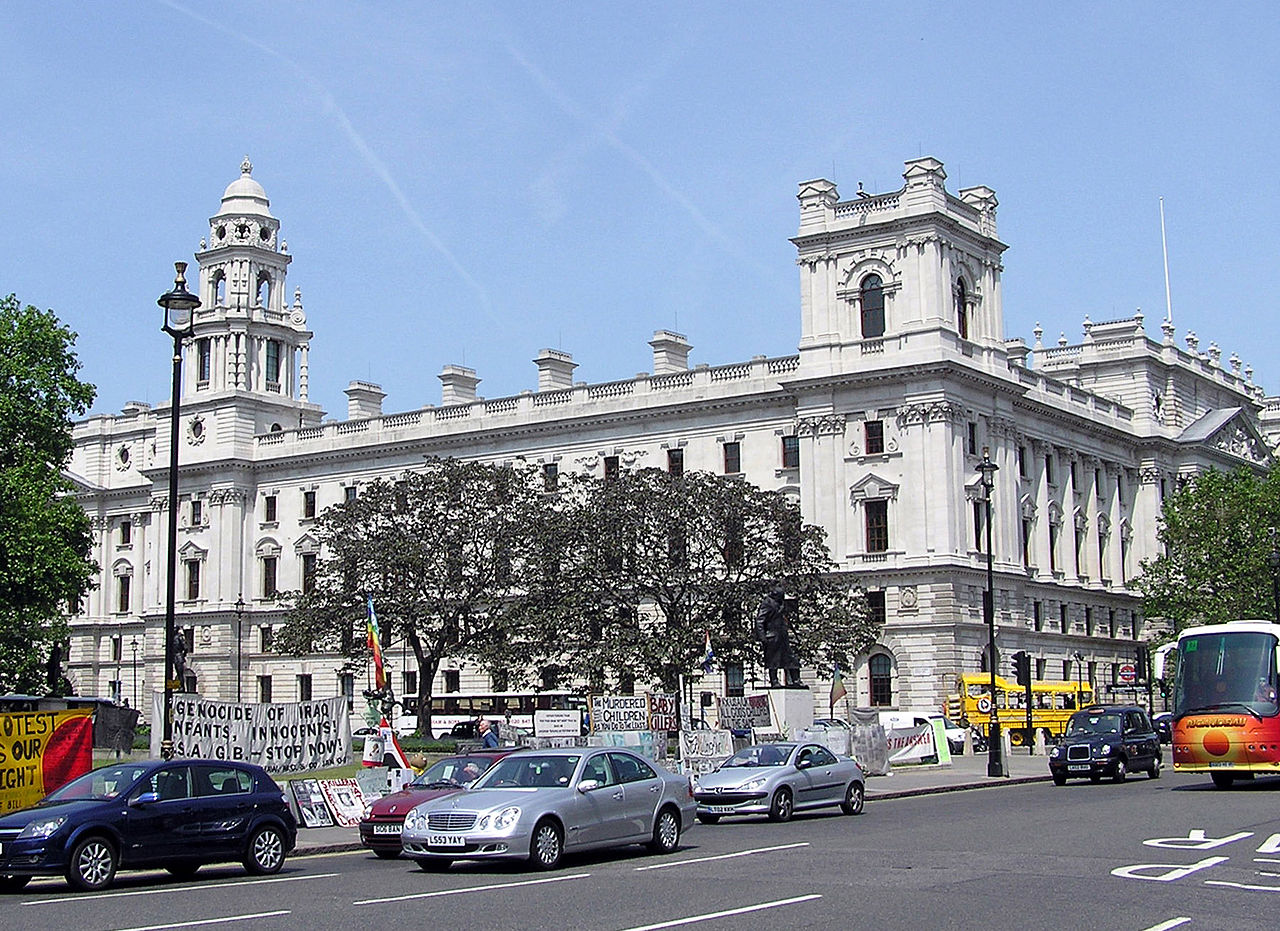11 June 2020
Plastic Fantastic
Paying the bills
by J.R.Thomas
 The clouds are finally parting and those of us who are partial to sunlight (apparently a good proof against dementia) are looking forward to better times. One though who may not be a ray of sunshine for some time is the Chancellor of the Exchequer, Rishi Sunak. Mr Sunak’s problems are just beginning and it requires a very sunny nature to see an end to the troubles which approach him, as it were, mangling our metaphors, like great clouds of dust across the prairie.
The clouds are finally parting and those of us who are partial to sunlight (apparently a good proof against dementia) are looking forward to better times. One though who may not be a ray of sunshine for some time is the Chancellor of the Exchequer, Rishi Sunak. Mr Sunak’s problems are just beginning and it requires a very sunny nature to see an end to the troubles which approach him, as it were, mangling our metaphors, like great clouds of dust across the prairie.
Mr Sunak has had a good emergency so far. Bright and energetic and apparently, rich, (these things often assist a cheerful disposition) he has stood out amongst the cohorts of senior ministers for seeming well informed, confident, and doing the right things at the right times. This being mainly to sit inside the Treasury throwing money at the furloughed and troubled. That is not, admittedly, a difficult role, but we can think of senior ministers who would have messed it up; Rishi though has won approbation from all sides.
But now his troubles must begin. The wind has been sown, but the whirlwind will have to be fended off. The economy must be rebuilt; business stabilised, the good saved and the bad let gently go. Jobs must be created and the jobless must be supported and got back into work. Tax revenues must be maximised to pay for the cost of Covid – now said to be £94bn but possibly up to £300 billion – yet at the same time taxes must be kept down to let the economy stagger back to its feet. Chancellors are not always gifted economists but they all know, or soon learn, that you can’t lighten the tax burden and at the same time increase tax revenues. Or, at least, that you can, but the latter generally follows a long period of the former.
Those objectives, so simply put, have flummoxed Chancellors before; but Mr Sunak has an additional problem: the man next door. Not only has he introduced a yappy dog and a crying baby into the quiet cul-de-sac (at least we assume they are yappy and criey, most such of our acquaintance are) but his urge is to spend like a lottery winner. Mr Johnson, of whom we muse, had loose purse-string tendencies even as Mayor of London, but getting the top job has really opened the vault. He could easily have bought cheap and widespread popularity by cancelling that blazingly expensive railway to Birmingham and maybe, you never know, beyond. But no, not only has it become his particular baby (other than the one in his Downing Street nursery), but he doubles up like a demented poker player by promising a bridge, or maybe a tunnel, to Northern Ireland. Close examination of a British Isles map will reveal that the northern end of that will land, or emerge, in a beautifully remote bit of Galloway; yet more doubloons required to build a long and physically difficult railway or road connection to, well, anywhere. Over to you, Chancellor.
And while we are on the subject of train sets, Mr J has in mind a new cross-Pennine rail route and all the infrastructural underpinnings of the Northern Powerhouse, and all those other little underpinnings that enabled him to breach the red wall at the last election. All that, he needs within four years. Over to you, Chancellor.
Also, it almost slipped our minds, Brexit. Now that might end up actually making us better off if the economic benefits come flowing through. No annual payments to Europe, and faster growth and all that sort of thing, but in the short term, some careful compensating of the early losers – farmers and exporters to Europe and maybe short haul flight operators, and so on; and the exit fee payable to the EU – extremely not negotiable as the EU’s own economy disappears into a Mediterraneanly sloping pit. Over to you, Chancellor.
Defence, a Tory favourite. Nothing much left to defend apart from dear old Blighty; not Hong Kong for sure. But modern defence incudes not having Chinese products in core British communication networks and operating Royal Navy ships and those noisy but barely visible airplanes the RAF are so fond of. Huawei, the previous supplier of choice, but no longer, are the cheapest. So now we must pay more. Over to you, Chancellor.
Power stations are another item on the Cabinet agenda. We haven’t enough for the new carbon free electric world and we can’t build enough turbines in these mild climates to power our projected requirements. That’s our current requirements, never mind the future as we all hum around in our electric vehicles. Solar? Nuclear? Tidal barrages? All very expensive. But, um, over to you, Chancellor.
Then there is another of Boris’s flags, firmly nailed to the Prime Ministerial mast. Greenness. No, not Guinness. Greenness, the Green Agenda, the religion of our days. Mr Johnson is very firmly committed to all sorts of targets that will make the UK the lowest carbon emitting country in the world by 2050. That is only 30 years away. In that time our whole transport system will have to be pretty much reinvented to abolish the use of oil based propellants. A lot of our heating systems too. The friendly hearts of country folk may soon grow cold – starting next year as the domestic use of coal is banned. Logs too, before you start felling those leylandii, unless they are kiln dried. And gas – no new installations, nor, soon, oil. And scrappage schemes to take the old cars of the poor and replace them with expensive debt driven electric cars. This may be all fine and worthy but it needs work yet. In fact the role of the poor in this has not yet been thought through. We all need a nicer planet, and one that will last our offspring and theirs unto a thousand thousand generations, but in the meantime the Green agenda is a major expense to those who can least afford it. As we say, not entirely thought through.
Take plastic, as an example. Plastic enwraps and encircles our world now; two generations from paper and card to plastic everything, wrapped up in plastic. It’s a nice cheap easy way (cheaper than ever at current oil prices) of making and protecting things. It also has nasty side effects; dustbins are full of unrecyclable plastic, as are our dumps, a lot of our rivers, and inevitably our oceans are full of micro plastics. Which are being absorbed by us and eaten by us. Chips, double cod, and polypropylene. Yum yum. But the thing about plastic is that it is highly effective at what it does. It is light, strong, flexible, and easy and quick to produce. It keeps food unspoiled longer. It protects food from transportation damage. It is a boon to the poor to whom all savings matter. Your paper shopping bag will let you down at the first sign of moisture, but plastic won’t. Your sausages and chicken will merge in a most unhealthy way on a hot day in a butchers paper bags – but not in little plastic ones.
The problem is partially how we dispose of plastic. If we could sort that out, and find a way of recycling, or combusting what won’t recycle, there might be a better solution than using inefficient card and paper, a polluting production process in itself, and felling trees -which we will need for bio-power stations. There have to be some economical solutions to that minor problem, some changed ways of doing things. But who is researching that, in the rush to ban all plastics?
But, as we say, over to you, Chancellor. No pressure.


